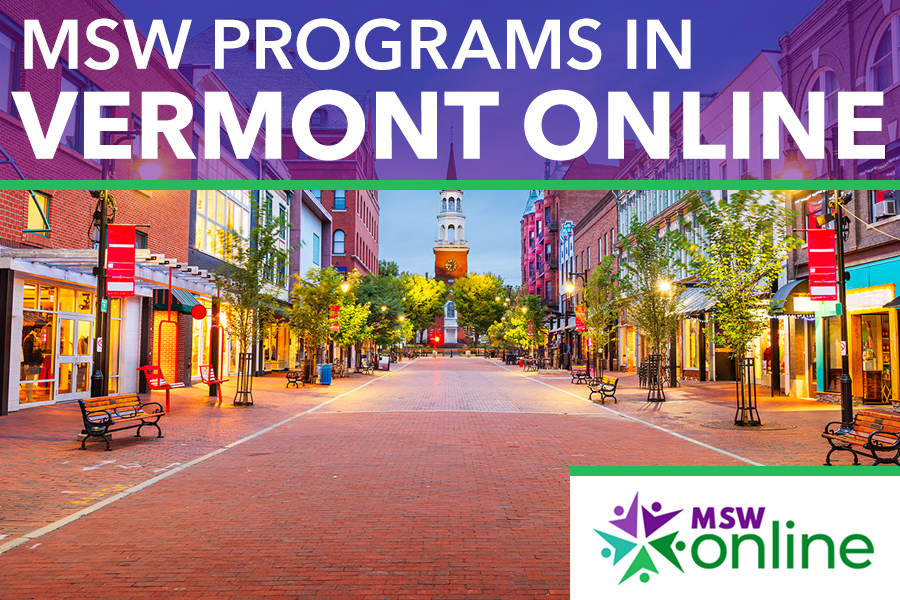MSW Programs in Vermont Online

Vermont’s intimate scale and close-knit communities create a distinctive environment for social work education, though prospective Master of Social Work (MSW) students in the Green Mountain State will find that the University of Vermont is the only on-campus school that offers an MSW program in the state, with all courses offered at the Burlington campus and no online component. For Vermont residents seeking greater flexibility or online learning options, numerous nationally accredited programs from out-of-state institutions welcome Vermont applicants and provide CSWE-accredited education that meets state licensure requirements. These external online programs often incorporate rural practice components and community-focused curricula that align well with Vermont’s emphasis on local engagement and sustainable community development.
Vermont’s social work landscape reflects the state’s rural character and progressive values, with MSW-prepared professionals addressing challenges unique to small-town and rural settings, including limited resources, geographic isolation, and the need for generalist practice skills across multiple populations and service areas. Whether pursuing education through Vermont’s campus-based program or through national online options, students prepare for licensure as Licensed Clinical Social Workers (LCSW) or Licensed Independent Clinical Social Workers (LICSW) under Vermont’s regulatory framework. The state’s aging population, opioid crisis response efforts, mental health service gaps in rural areas, and strong tradition of community-based nonprofit organizations create meaningful career opportunities for MSW graduates committed to serving Vermont’s tight-knit communities and addressing the complex social issues facing small-state environments.
List of Vermont Advanced Standing Online MSW Programs
Advanced standing MSW programs in Vermont provide an accelerated pathway for BSW graduates from CSWE-accredited institutions, enabling them to complete their master’s degree through a condensed academic track. Currently, the University of Vermont is the only on-campus school that offers a MSW program in the state, while Vermont residents can also explore online MSW program options offered by out-of-state schools that accept applicants from Vermont. These programs emphasize rural community practice, environmental sustainability work, and seasonal population services to address the unique needs of Vermont’s small towns, agricultural regions, and the distinctive challenges of New England’s Green Mountain communities.
